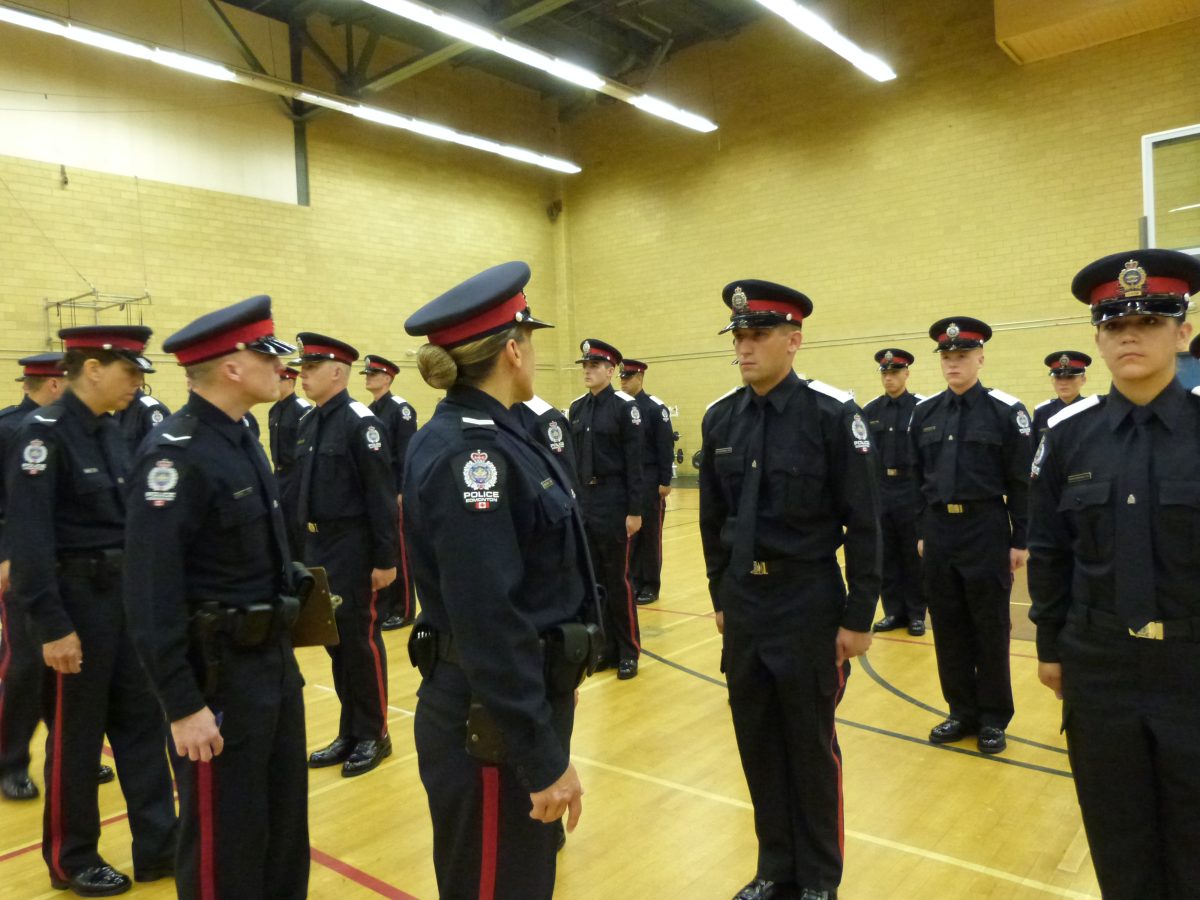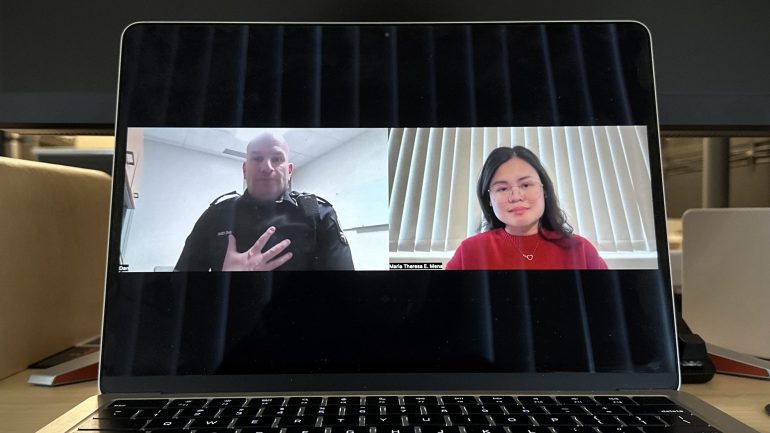Q&A: Edmonton Police Service sergeant Daniel Tames gives advice on how to keep yourself safe
By Maria Mena on March 25, 2024
Crimes can take place at any moment, especially in big cities like Edmonton. According to Statistics Canada data, Edmonton’s total crime rate increased eight per cent between 2021 and 2022. With crimes around the city, a police force like the Edmonton Police Service is essential in maintaining public peace.
EPS sergeant Daniel Tames talks about what it means to be a police officer and how people can stay safe and protect themselves from danger.
Q: What do you think makes a good police officer?
A: “I think what makes a good police officer is somebody who’s very caring and compassionate. People think that being a police officer is just about catching bad guys and, you know, stuff like that, but it’s not.
We’re really in the business of trying to help people and trying to help people deal with certain situations in their life. A lot of the times when we’re dealing with somebody, when we go to something, it’s the worst time in their lives, right? Whether it’s a major collision or a death in the family or other incident which brings us into their lives. And [it’s important] having that compassion and that empathy, being able to help and show that compassion to those people that are in that terrible time. So it’s not just a matter of being the most biggest or the strongest person. It’s a lot more than that. Being able to talk is a really important part of being a police officer.”
Q: What are the important skills the police force needs to learn to maintain order in the city?
A: “Obviously, to maintain order and those types of things within the community, it’s knowing your powers of arrest, knowing your bylaws, knowing those certain things and what can be done, what can’t be done. Also, being able to have, you know, that community-mindedness within their approach to policing and being able to, at times, exercise discretion. At times, just because we can give a ticket or we can do something doesn’t mean that we necessarily have to. So, being able to make those decisions and do so in a way which helps the community is really beneficial.”
Q: Edmonton has one of the highest crime rates in Alberta. As a sergeant, what are your thoughts when people say Edmonton is an unsafe place to live in?
A: “Edmonton is a safe place to live in. Unfortunately, there’s crime everywhere. Whether you’re in Edmonton, whether you’re in Calgary, in any small center within Alberta, within the country, there’s crime everywhere. And it’s trying to protect yourself from that crime and not putting yourself into a potentially vulnerable situation where you can be a victim, right? Always being aware of your surroundings, ensuring that you’re not putting yourself into a position where you could potentially become a victim.”
Q: When was the last time you experienced a dangerous situation yourself?
A: “I think every day as a police officer because we wear this uniform. There’s always situations every day which could potentially turn into something, which could be a dangerous situation. And it’s always having your wits about you as a police officer.
And always, again, just like we tell the public, when we have the uniform on, we become a target. Whether it’s a target to somebody that means us harm or whether it’s a target with somebody coming to us and asking us questions because they see us as a safety mechanism and as a resource to get the information that they need to get in order to be safe, right? ‘Oh, hey, we have a problem with, there’s a guy that’s doing this over in this area, or, hey, we see a guy over here and he’s doing this, or we saw a guy that’s injured, or there’s a guy that’s threatening people over here.’ So potentially every day as a police officer, we always have to be on our guard and we always have to be really aware of our situation and what’s going on around us as well.”

Q: What advice can you give to your fellow police officers to be safe?
A: “You know, just always being aware of your surroundings, always watching what’s going on, always listening. It’s really good advice, whether you’re a police officer or whether you’re a civilian and you’re walking around. For your own safety, always know what’s happening around you. [And] like I said, we become kind of a target with the uniform on because everyone recognizes us as police. We can’t just slip into a crowd and disappear. We’re very visible. So it’s always knowing what’s going on around you and looking for certain cues within the crowd.”
Q: In Canada, pepper spray and stun guns are banned weapons. What tips can you give to civilians to keep themselves safe?
A: “You have to be very careful because like you said, you can’t carry weapons with you for self-defense. And again, like I mentioned before, it comes down to protecting yourself. You know, with your car, for example, making sure that there’s no valuables that are visible inside of your car, put all your stuff in your trunk or have it hidden somewhere else. Or if you’re going for a walk, just being aware of what’s going on around you and watching if somebody’s following you. Just making sure that you’re always aware of those things and what’s going on around you. You talk about those dangerous situations for yourself. And if you see something suspicious, call the police. That awareness and that being cognizant of what’s going on around you is really part of your best defence.”
Q: How long would it normally take for police to arrive?
A: “It depends on the situation. It depends where you’re calling from. If you’re in a more remote location, it will take longer for the police to get there. Obviously, if you’re in more of the urban, like downtown area, it will take less time. And then it just depends on, like if it’s a really high-risk situation where there’s a crime that’s in progress, or if somebody’s getting assaulted, or there’s something that’s really dangerous like that, then that will be a different priority than. Let’s say somebody that had something stolen out of their yard, for example. That would be a lower priority than when there’s a priority of life. So, like there’s different factors as far as that goes with the amount of time that it could take for police to get to your incident that you’re calling in and reporting.”

To receive help in any life-threatening situation, dial 911. For non-emergency calls, dial (780) 423-4567 or #377. To get more information involving the Edmonton Police Service, reach out to their email address.
